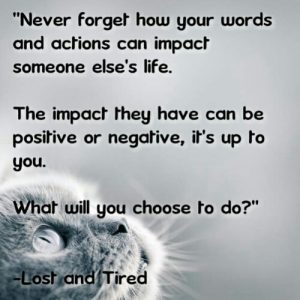Running For Autism
Meet Kristen and check out her awesome blog, it’s at http://runningforautism.com. Follow her on Facebook at http://www.facebook.com/pages/Running-for-Autism/202132916468255 and find her on Twitter, her handle is @running4autism.
When we first got hit with my firstborn son George’s autism diagnosis, people kept telling us it was a good thing. Now that we knew what was wrong, they said, we could find out more about it and get the right services in place. We could get George on the waiting list for this service or that funding. We had a word, a specific condition, to Google.
These well-meaning folks, most of whom did not have any first-hand knowledge of special needs parenting, made it sound so easy. All of the answers and help we needed, just a phone call away.
In practice, this should have been true. In Ontario, autism services – specifically, IBI therapy, which falls within ABA – are funded by the government. That’s the good news. The bad news is that not all individuals with autism qualify. Even though we had in our hot little hands a fifteen-page report detailing the level of George’s autism and what his strengths and deficits were, we had to take him to be assessed by a government social worker. The results of this assessment would determine our eligibility for services.
We were a collective bag of nerves on the day of the assessment: George because he was being lugged across the city to unfamiliar faces at a strange place, and me and my husband because so much was riding on this day. If the assessment did not go in our favour, we would have to fund the IBI therapy ourselves, and we hardly had two beans to rub together.
After the assessment, we couldn’t get a sense of which way the wind was blowing, and we went through three unbearable weeks before we got the results.
I cried when I finally got the news that George had been deemed eligible. Gut-wrenching sobs of relief for us, and tears of sorrow for all of those families who weren’t so lucky.
After languishing on the provincial waiting list for another year and a half, George finally started IBI therapy. We were nervous about it: we were well aware that if he did not make notable progress, he could be removed from the program, which was strapped for government funding.
As it turned out, George could have been a poster child for IBI. Going in, he had virtually no communication skills and no daily living skills, and a multitude of issues relating to behaviour and emotional regulation. We started seeing results within two weeks of him entering the program. He got better at making verbal requests, there were fewer scary head-banging incidents, and a true aptitude for numbers emerged.
In his first year of services, George made 23 months worth of gains. This was nothing short of phenomenal. No-one had expected him to launch himself on this kind of trajectory. The potential in this kid just exploded. Far from being discharged from the program, the staff at the therapy center were itching to see what they could accomplish with him.
Over the next two years, we gradually shifted the bulk of George’s time from the IBI program to the special ed class at his school. Almost every day we saw some form of progress. By the time he made the transition to full-time school, he was making requests using full sentences, he was initiating some simple social exchanges, and he had learned a number of valuable daily living skills. We also started seeing the emergence of his quirky sense of humour (it has to be said: the kid is funny.)
It hasn’t all been plain sailing. George still has some intense challenges. He panics when his hair is washed or his nails are cut. He still doesn’t talk unless he absolutely has to, and his social communication skills still lag far behind. He struggles with emotional regulation and has meltdowns that break my heart. Any change to his regular routine is enough to send him into a tailspin.
As hard as it is, and as much as I sometimes want to hide in a corner with my hands over my head, the good far outweighs the bad. When I look at George, I see a child who is smart and funny, who sees the world differently to the rest of us. I see a child whose way of thinking is totally unique yet sometimes, highly effective. He can focus intensely on something that interests him, and he pays careful attention to detail.
At the same time, he is chock-full of love, never short of a hug for me, his dad, and his little brother.
He is an amazing kid, and as long as he continues to receive the support he needs, the sky will be the limit for him.


